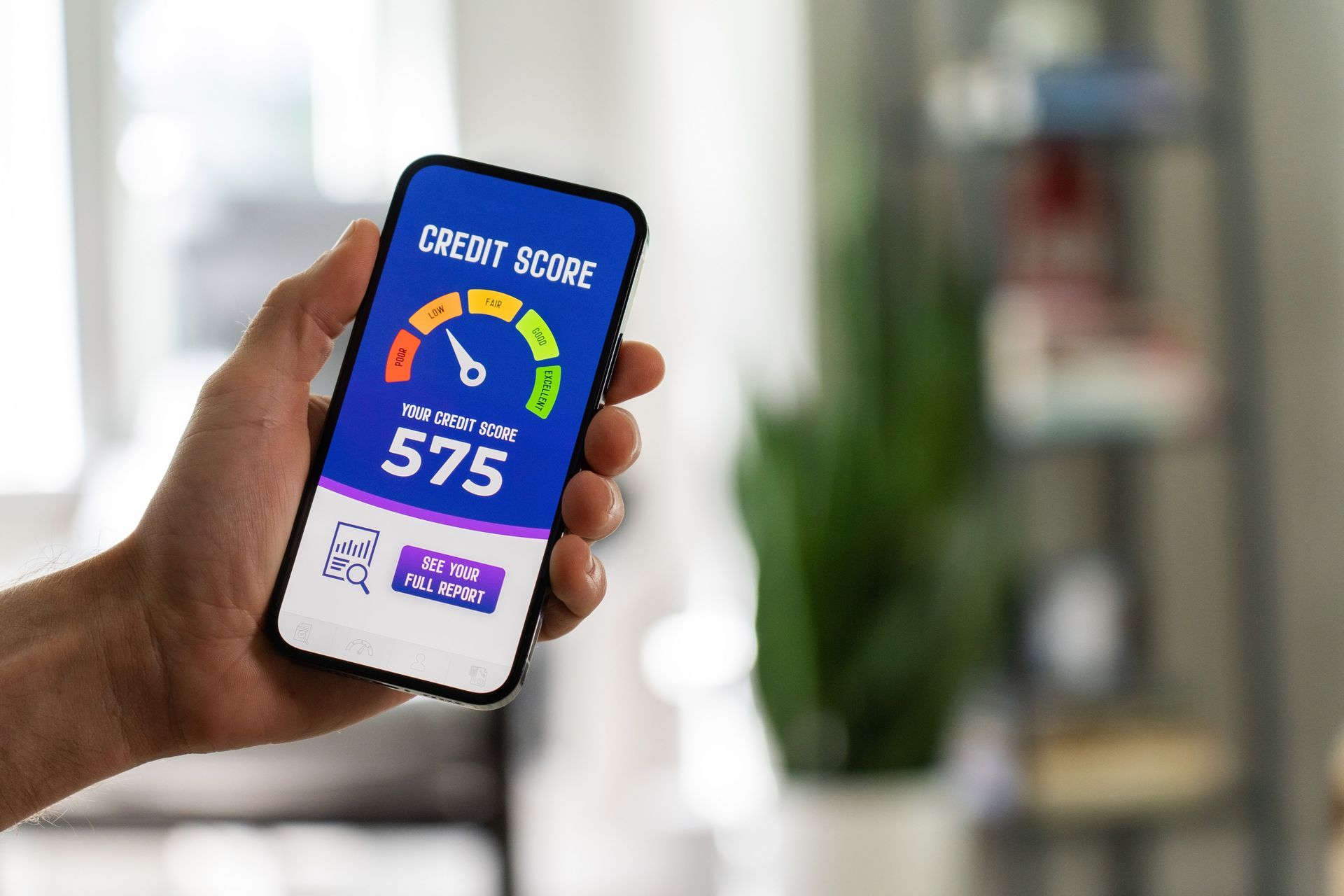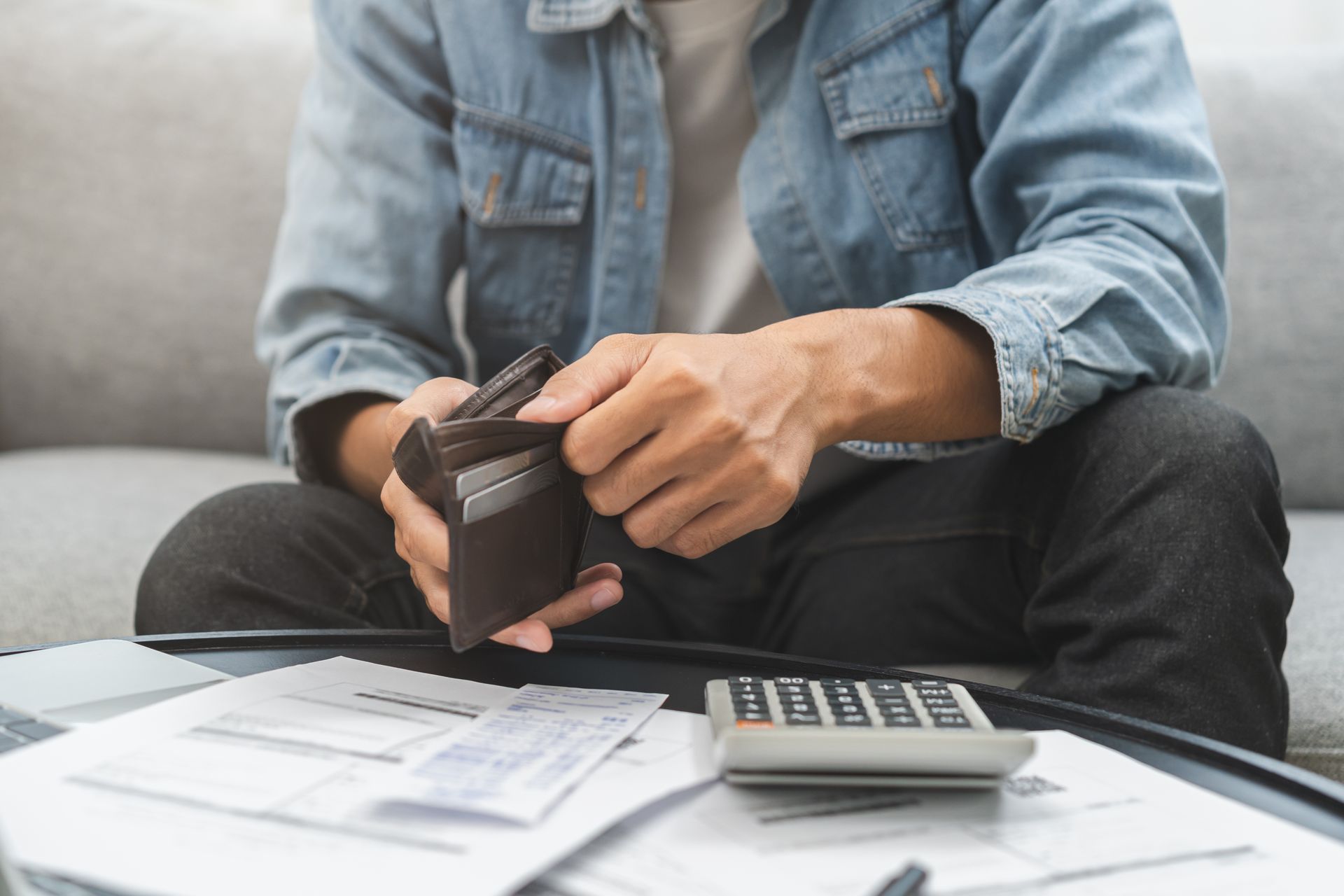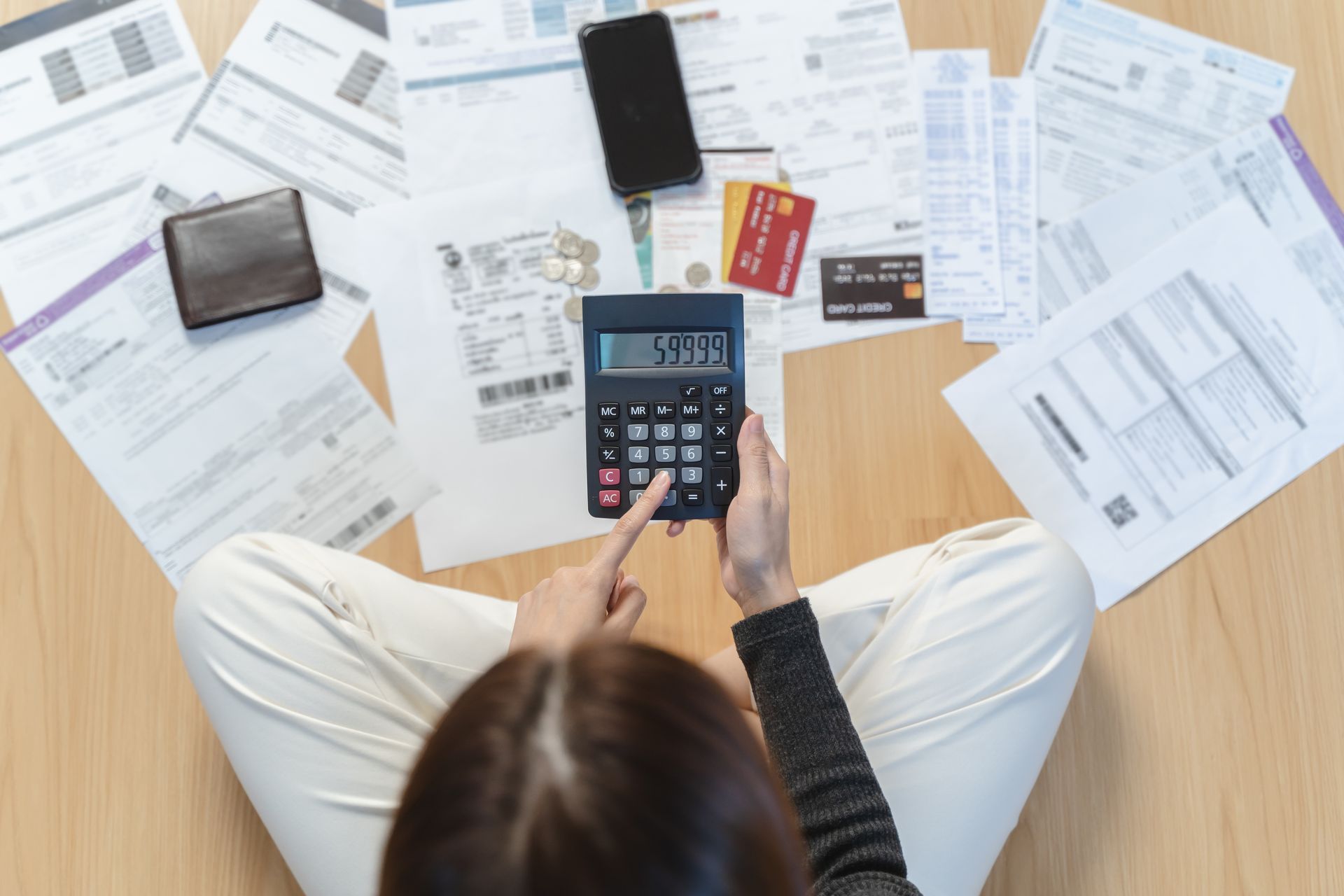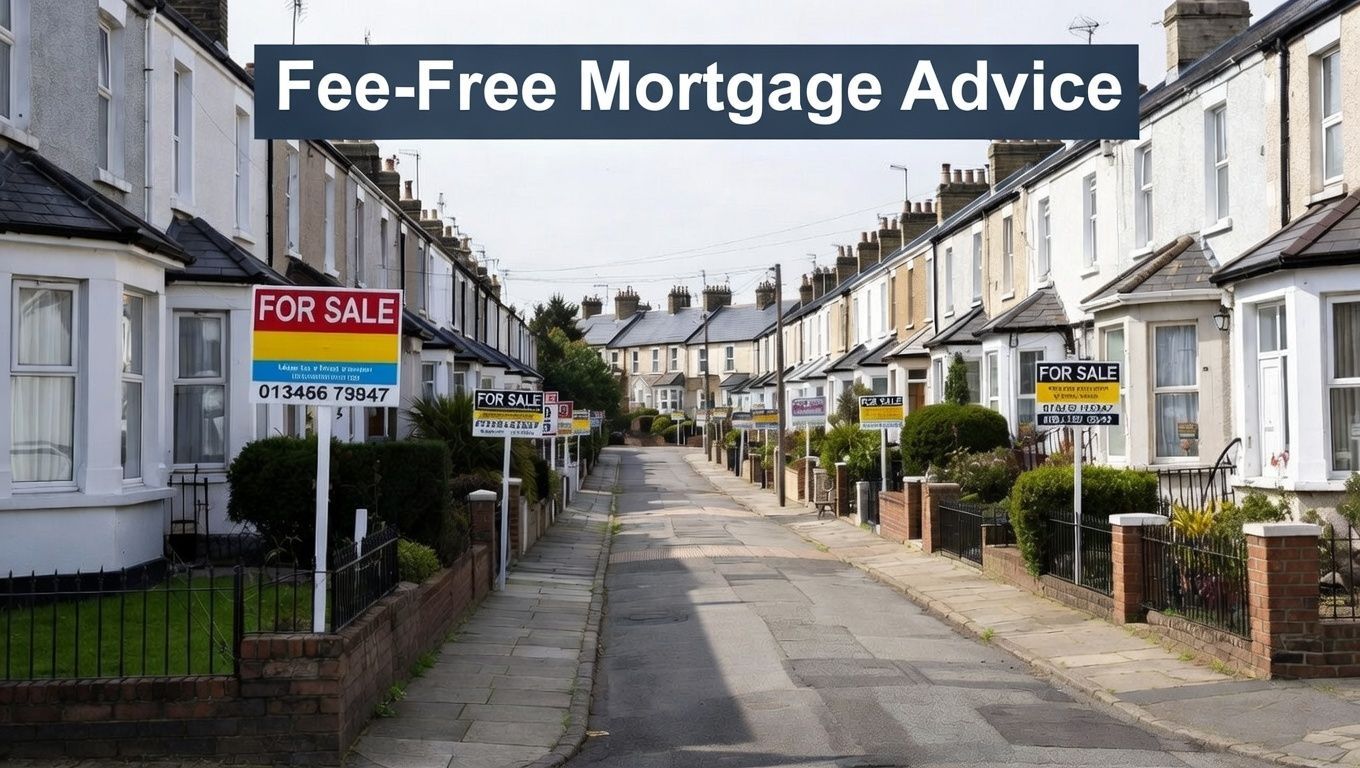Can I Get a Mortgage with Bad Credit?
Can I Get a Mortgage with Bad Credit?
How to improve your chances and what lenders really look for
Let’s be honest – applying for a mortgage can be stressful at the best of times. But if you’ve got bad credit, it can feel like the odds are stacked against you.
The truth is, you can get a mortgage even with a poor credit history. It just might take a bit more planning, the right support, and a lender who understands your situation.
This article will walk you through what to expect, how to improve your chances, and what alternatives might be available if a mainstream lender says no.

What do lenders mean by “bad credit”?
The phrase “bad credit” is quite broad. It can include anything from a few missed payments to more serious issues like:
- County Court Judgements (CCJs)
- Defaults on loans or credit cards
- Individual Voluntary Arrangements (IVAs)
- Bankruptcy
- Repossession
Lenders use your credit report to get an idea of how reliable you are when it comes to borrowing and repaying money. But they’ll also look at the context — how long ago the issues occurred, how much debt you have now, and how stable your current income is.
A missed payment five years ago that’s been followed by years of good behaviour is very different from a recent default. Not all credit issues carry the same weight.
What are mortgage lenders looking for?
Most lenders will check three main areas when you apply for a mortgage:
- Your credit history – Do you have a record of managing money well? Have you had any serious issues?
- Your affordability – Based on your income and outgoings, can you afford the monthly repayments?
- Your deposit – How much are you putting down? A bigger deposit reduces the lender’s risk.
Even with bad credit, a stable income, low existing debt, and a healthy deposit can all work in your favour.
How bad credit affects your options
If your credit history includes serious issues, you might find that:
- Fewer lenders are willing to offer you a mortgage
- You may need a bigger deposit (typically 15%–30%)
- The interest rate could be higher
- You may be asked to provide more documentation
That said, not all lenders treat credit issues the same way. Some specialise in working with people who have less-than-perfect credit. These “adverse credit lenders” are often more flexible — but they’re usually only available through specialist brokers, not on comparison sites.

Steps to improve your chances of being accepted
Before applying for a mortgage, it’s worth taking some time to get your finances in order. Here are five simple ways to improve your standing:
- Get a copy of your credit report - Check for errors, outdated information, or fraudulent activity. Use all three main agencies (Equifax, Experian, and TransUnion) if you can.
- Register to vote - Being on the electoral roll at your current address helps lenders verify your identity.
- Pay all your bills on time - Even something as small as a missed mobile bill can hurt your score. Set up direct debits to stay on track.
- Reduce your existing debts - Paying down loans or credit cards (even gradually) shows you’re in control of your finances.
- Avoid multiple credit applications - Every application leaves a mark. Too many in a short time can make you look desperate for credit.
If you’ve had issues in the past, lenders want to see evidence that your financial situation is now stable and improving.
How much deposit will I need?
With a clean credit history, some lenders accept deposits as low as 5–10%. But with bad credit, you may need more — often 15–30%.
Why? Because a bigger deposit reduces the lender’s risk and shows that you’re financially committed. It can also help you access better rates, even with a blemished record.
If a deposit is a challenge, it’s worth exploring whether family members might be willing to help.
Can family help if my credit’s poor?
Yes. Some mortgage products allow for family support in different ways, including:
- Guarantor mortgages, where a family member agrees to cover your repayments if you can’t
- Joint borrower, sole proprietor mortgages, where a parent or relative is on the mortgage but not the deeds
- Gifted deposits, where a family member provides part or all of the deposit
Each of these routes has pros and cons, and everyone involved should seek independent advice. But they can open doors that might otherwise remain closed.`
What if I’ve already been turned down?
Being declined for a mortgage doesn’t mean you won’t ever get one. But it is a sign that you need to pause and reassess before applying again.
Each rejection leaves a mark on your credit file, and too many in quick succession can lower your chances even further.
This is where speaking to a whole-of-market mortgage advisor can really help. They’ll assess your circumstances, check which lenders are most likely to say yes, and guide you through the application process in a more targeted way.
Is it worth waiting to apply?
In some cases, yes. If your credit issues are recent — within the last 6 to 12 months — it may be worth waiting.
Lenders often prefer to see that you’ve kept your finances stable for at least a year following a problem. In that time, you can work on improving your credit score, reducing debt, and saving a bigger deposit.
Even three to six months of improved financial behaviour can make a difference.
Final thought
A bad credit score can make things harder, but it doesn’t mean home ownership is out of reach.
Plenty of people with past credit problems still manage to buy a home. The key is to understand your position, take the right steps, and work with people who know the mortgage market inside out.
You don’t have to figure it out on your own. Contact Chesterton Grant for support.
FAQs: Getting a Mortgage with Bad Credit
1. Can I get a mortgage with a CCJ or default?
Yes, some lenders will consider applicants with CCJs or defaults, especially if they’re over 12 months old and now settled.
2. How long after bad credit can I apply for a mortgage?
You can apply at any time, but your chances improve the longer ago the issue was — ideally 12 to 24 months.
3. Will a missed payment stop me getting a mortgage?
Not necessarily. One missed payment may have little impact if everything else is in order and your recent history is good.
4. Do I need a bigger deposit if I have bad credit?
Often yes. A deposit of 15–30% may be required, though some specialist lenders might accept less depending on your situation.
5. Should I use a mortgage broker if I have bad credit?
Absolutely. A whole-of-market broker can match you with lenders who are more flexible and experienced with credit issues.
6. Will checking my credit report affect my score?
No — checking your own credit report is considered a “soft” search and has no impact on your credit score.
7. Can I get a mortgage if I’ve been bankrupt?
Yes, but you’ll usually need to wait at least 6 years and demonstrate a strong recovery in your finances since then. There are exceptions to this, certain lenders will even consider an application after 12 months dependent on circumstances.
8. Will bad credit mean higher interest rates?
It can do. Lenders may charge higher rates to offset risk, but rates can improve over time with better credit behaviour.
9. What credit score do I need for a mortgage?
There’s no universal score — each lender has their own criteria. They assess your full financial picture, not just the number.
10. Can I apply for a mortgage with someone who has good credit?
Yes. A joint application with someone who has strong credit may help, but your own credit history will still be considered.











